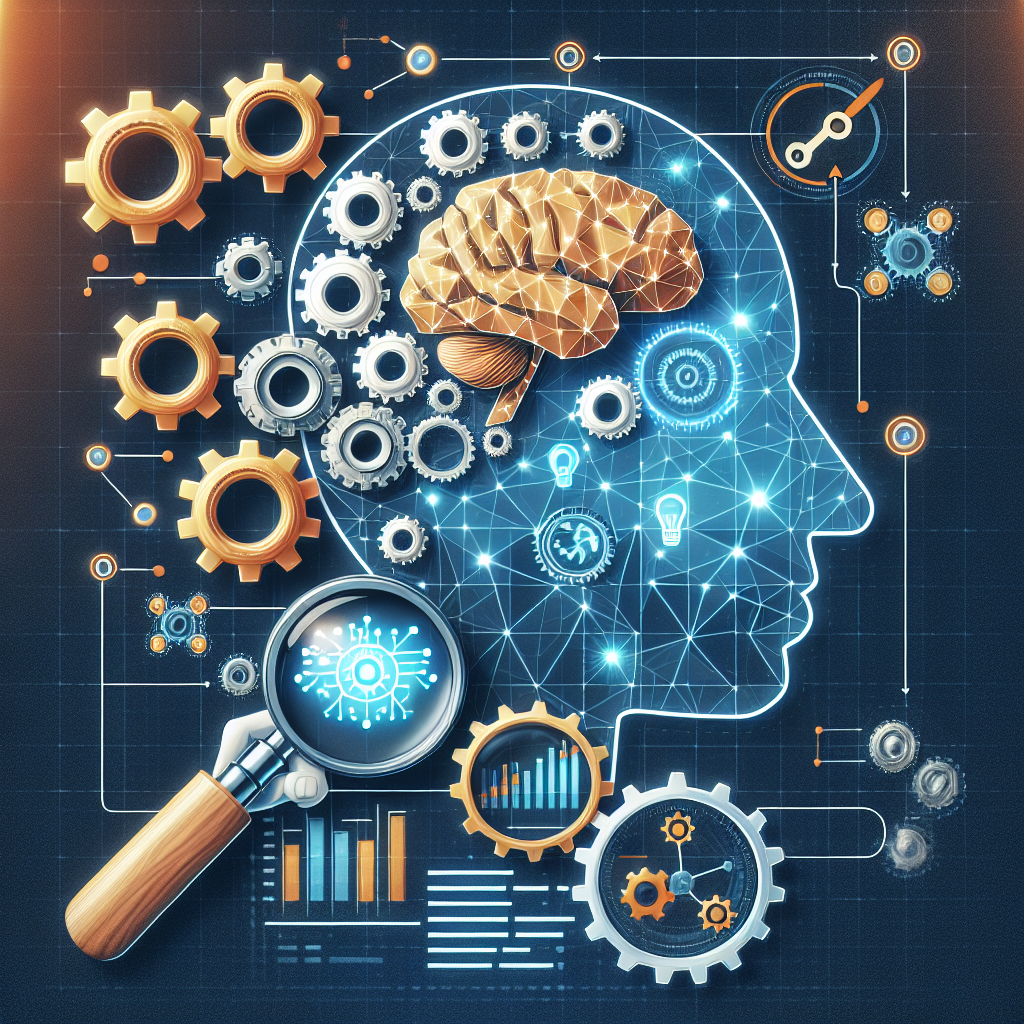In today’s fast-paced business environment, maximizing project efficiency is crucial for staying competitive and meeting deadlines. One of the key ways to achieve this is through the use of AI workflow automation. By leveraging artificial intelligence technology, businesses can streamline and optimize their project processes, saving time and resources while improving overall productivity.
AI workflow automation involves the use of machine learning algorithms to automate repetitive tasks, identify patterns in data, and make predictions or recommendations based on the information available. This technology can be applied to various aspects of project management, from scheduling and task assignment to risk assessment and resource allocation.
One of the main benefits of AI workflow automation is that it can significantly reduce the amount of manual work required to complete a project. By automating routine tasks such as data entry, report generation, and communication between team members, project managers can focus on more strategic aspects of their work, such as planning and decision-making.
Another advantage of AI workflow automation is its ability to analyze large amounts of data quickly and accurately. By processing information from various sources, AI algorithms can identify trends, detect anomalies, and predict future outcomes, helping project managers make more informed decisions and take proactive measures to address potential issues.
Furthermore, AI workflow automation can improve collaboration and communication within project teams. By providing real-time updates on project status, resource availability, and task deadlines, AI systems can help team members stay informed and coordinated, leading to better teamwork and faster progress towards project goals.
In addition to these benefits, AI workflow automation can also help businesses save money by reducing the need for manual labor and minimizing the risk of errors or delays in project execution. By automating routine tasks and streamlining processes, organizations can increase their efficiency and profitability while delivering high-quality results to their clients.
To maximize the effectiveness of AI workflow automation in project management, businesses should consider the following best practices:
1. Identify key areas for automation: Before implementing AI workflow automation, project managers should analyze their current processes and identify tasks that can be automated to improve efficiency. By focusing on high-volume, repetitive tasks, businesses can achieve the greatest impact from automation.
2. Integrate AI technology with existing systems: To ensure seamless workflow automation, businesses should integrate AI technology with their existing project management tools and software. This will allow for smooth data exchange and communication between different systems, enabling a more cohesive and efficient workflow.
3. Train employees on AI technology: To successfully implement AI workflow automation, businesses should provide training and support to their employees to help them understand how AI technology works and how it can benefit their work processes. By investing in employee education, businesses can ensure a smooth transition to automated workflows and maximize the benefits of AI technology.
4. Monitor and evaluate performance: After implementing AI workflow automation, businesses should regularly monitor and evaluate the performance of their automated processes to identify areas for improvement and optimization. By tracking key metrics such as efficiency, accuracy, and cost savings, businesses can fine-tune their automation strategies and maximize the benefits of AI technology.
5. Continuously update and improve AI algorithms: To stay ahead of the competition, businesses should continuously update and improve their AI algorithms to adapt to changing project requirements and market conditions. By investing in research and development, businesses can ensure that their AI workflow automation remains effective and relevant in the long run.
In conclusion, AI workflow automation is a powerful tool for maximizing project efficiency and streamlining project management processes. By leveraging artificial intelligence technology, businesses can automate routine tasks, analyze data more effectively, improve collaboration and communication, and save time and resources. By following best practices and continuously optimizing their automation strategies, businesses can stay competitive and achieve their project goals more efficiently.
FAQs:
Q: How does AI workflow automation differ from traditional project management methods?
A: AI workflow automation uses machine learning algorithms to automate repetitive tasks, analyze data, and make predictions or recommendations based on the information available. This technology can significantly reduce the amount of manual work required to complete a project and improve overall efficiency and productivity.
Q: What are some examples of tasks that can be automated with AI workflow automation?
A: Some examples of tasks that can be automated with AI workflow automation include data entry, report generation, scheduling, task assignment, risk assessment, resource allocation, and communication between team members. By automating these routine tasks, businesses can save time and resources while improving collaboration and decision-making within project teams.
Q: How can businesses benefit from AI workflow automation in project management?
A: Businesses can benefit from AI workflow automation in project management by saving time and resources, improving efficiency and productivity, enhancing collaboration and communication within project teams, reducing the risk of errors or delays, and increasing profitability. By leveraging artificial intelligence technology, businesses can streamline their project processes and achieve better results more quickly.
Q: What are the best practices for maximizing the effectiveness of AI workflow automation in project management?
A: Some best practices for maximizing the effectiveness of AI workflow automation in project management include identifying key areas for automation, integrating AI technology with existing systems, training employees on AI technology, monitoring and evaluating performance, and continuously updating and improving AI algorithms. By following these best practices, businesses can optimize their automation strategies and achieve the greatest benefits from AI technology.

